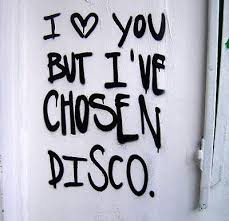Lurking in our language, there’s a number of naughty words that we have conveniently categorised as “Four Letter Words”. You know what I’m talking about.
Most of us typically utter these offensive tones to express our dislike of something, or someone. If you’ve ever been the unlucky “someone” on the receiving end of such an outburst, you’ll know that it tends to cause offence, and doesn’t do much for the relationship you might have with that person.
So we tend, as a rule, to avoid using Four Letter Words, at least if we’re interested in building a positive, trusting relationship with the people we deal with in day to day life.
Unfortunately, there’s a “Four Letter Word” that has been more cunning than most. Like a computer virus, it has disguised itself as a benign part of our language, embedded itself in our communication system, and is causing havoc without us even consciously knowing it. Whoever invented this word was sly indeed – they disguised it as a three letter word, while having the same offensive force as the common, garden, four-letter variety.
The word? “But”
It shows up everywhere. Once I began to notice the “But” phenomenon, it appeared incessantly. The first time I tuned into it was on the radio, when I heard a prominent politician saying something along the lines of “we have consulted with the local residents on this issue, and we fully understand where they are coming from. But our advice from the experts is that …blah blah blah…We will give both sides of the story full consideration blah blah blah and come to a final decision.”
My translation? “We are siding with the experts on this one, and we don’t value the residents’ point of view.”
Words create worlds. Our language we choose to use betrays our thinking. What the use of “but” said to me in the above example was that this person’s mind was already made up, and he was going with the experts. On the surface it may appear that he was being objective and impartial. At a deeper level, if you really listen, you can hear the real thinking and intention behind his talk. All because of one little three letter word.
In many cases, the use of “but” says “Ignore everything I have just said, this is what I really mean.”
Further examples:
“You did well in covering all the relevant points in that last report, but you need to work on cutting it down” (Translation: “Your report was too waffly and I think you need to be more concise.”)
“I love you, but your nose hairs are too long” (Translation: “I don’t find you attractive right now.”)
The upshot? We often trigger negative responses in other people, either at a conscious or subconscious level, when we unwittingly use the word “but”. Responses that could include defensiveness, frustration on outright anger. In trying to be nice, in attempting to be seen to be offering a balanced view, things can may not go as well as you’d hoped. You may not get the buy in you’ve been hoping for. In my experience, people, at some level, get a sense that you are not saying what you really want to say. Trust, at some level, breaks down.
By the way, if you really want to break down trust, forget “but”, and try “however” – and watch the relationship dissolve before your eyes…
So what do you do if you want to get your point across and maintain the relationship? Fortunately, there’s an easy solution. An antivirus, if you like. And it comes in the form of another three letter word.
That word? “And”
Try replacing “But” with “And” in any of the three examples above. Consider this: “We have consulted with the local residents on this issue, and we fully understand where they are coming from. And our advice from the experts is that …” Does that sound like a more truthful, and potentially more effective way, to building trust and credibility with the audience?
The trick is that “and” has the effective of building on what has been said previously. “But” tends to negate. The speaker is genuinely heard to be offering a more balanced point of view when they use “and” rather than “but”.
You might take a moment to reflect on how often you’ve used the three letter word today. My guess is, that if you have, it hasn’t been intentional. Most of the time, we say it without giving it a second, or even first, thought. And what effect does it have on your audience? What effect do you intend having?
Like this post? You’re only getting half the story. Sign up to my ‘Fresh Thinking’ newsletter, delivered monthly to your inbox.


